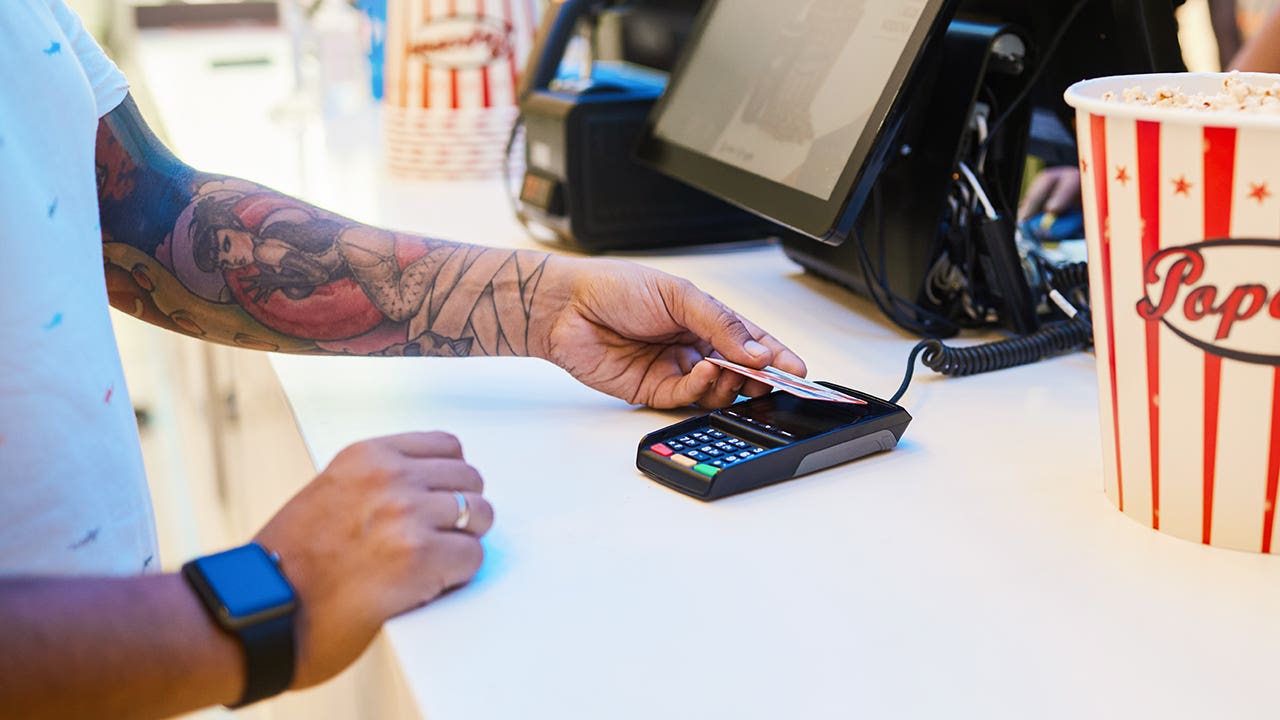What is a prepaid card and how does it work?

Key takeaways
- Prepaid cards let you make purchases with money you’ve loaded onto the card, instead of drawing from a bank account or line of credit.
- You can get a prepaid card without a credit check, but using the card won’t build your credit score.
- Other card options for people without good credit are secured cards, unsecured cards for bad credit and becoming an authorized user on someone else’s card.
A prepaid card is a card you preload with money to use for expenses. Prepaid cards don’t require a credit check and can be useful for young adults or others trying to establish strong financial habits without taking on the financial responsibility of a credit card.
Prepaid cards are versatile financial tools that can be used by individuals from all walks of life.— Deirdre Ives, Senior Vice President of Prepaid at FIS
What is a prepaid card?
A prepaid card can only be used for spending money you already have.
Similar to a gift card, you make purchases with a prepaid card without borrowing from a line of credit. You load it with a balance ahead of time that acts as your spending limit.
A prepaid card can be used in place of a credit card for payments, but won’t incur debt or interest charges like a credit card.
“They are suitable for various types of purchases, including online transactions,” says Deirdre Ives, senior vice president of prepaid business at FIS, a fintech company. She goes on to say that people use prepaid cards for budgeting, in-app purchases, teen spending and gifting. The cards sometimes serve as alternatives to bank accounts.
“Government entities also use prepaid cards to disburse benefits, avoiding the need for check payments,” Ives says. “Additionally, insurance companies offer Health Savings Accounts (HSA), Flexible Spending Accounts (FSA) and Health Reimbursement Arrangements (HRA) through prepaid accounts.”
A prepaid card won’t boost your credit score, but can come in handy for making online purchases or paying bills. Some people also use prepaid cards as a way to teach their children how to manage money.
These cards carry recognizable brands such as Mastercard, Visa, American Express and Discover, and can be used wherever these brands are accepted. They are easily obtainable in stores, online and occasionally at banks or credit unions.
— Deirdre Ives Senior Vice President of Prepaid at FIS
Prepaid cards vs. debit cards vs. credit cards
Unlike debit cards, prepaid cards aren’t linked to a bank account. And unlike credit cards, prepaid credit cards don’t come with a line of credit.
Prepaid cards are issued by banks and financial service companies, and you only have access to the money you load onto them. You aren’t borrowing money or paying a deposit that acts as collateral.
The pros and cons of prepaid cards
A prepaid card functions like any other card when making purchases. You can swipe it or insert it at most point-of-sale systems.
But you may be wondering — what’s the point of a prepaid card when you could pay with cash? Here are a few prepaid card benefits and downsides to consider.
Pros
- Accessibility: If you’re not likely to qualify for a credit card, a prepaid card is a more accessible option. The prepaid card issuer grants access to the card without a credit check.
- Budgeting: With 50 percent of Americans in credit card debt, according to Bankrate’s 2024 Credit Card Survey, a prepaid card can help prevent racking up debt.
- No missed payments: While traditional credit cards can be convenient, they can also be a liability. With a prepaid card, you won’t make late or missed payments on a credit card bill, which hurts your credit score.
- Fraud protection: If your prepaid card is stolen, the thief will only have access to the amount loaded onto the card and not an entire checking account, like with a debit card. Ives says that prepaid cards tend to come with fraud protection and dispute resolution processes.
- Versatility: Prepaid cards aren’t just limited to grocery store runs or shopping trips. “They can be used for various purposes, including payroll cards for employees who do not choose direct deposit,” Ives says.
Cons
- Fewer consumer protections: In 2019, the Consumer Financial Protection Bureau added consumer protections for prepaid accounts in case of errors, loss or theft, and stricter rules for issuers sharing information about prepaid account fees. While this is a step in the right direction, these protections don’t stack up to traditional credit cards.
- No credit building: When you use a prepaid card, you aren’t borrowing money, so activity isn’t reported to the three credit bureaus. If your goal is to improve your credit score, consider becoming an authorized user on someone else’s card or applying for a secured credit card.
- Fees: Before committing to a prepaid card, be aware of any fees. “Prepaid cards can come with various fees, including activation, purchase, ATM withdrawal, cash loading, balance checking, foreign transaction and inactivity fees,” Ives says. “Consumers should compare offerings before selecting a provider.”
Alternatives to prepaid cards
Not everyone is comfortable with the idea of a prepaid card, especially those who want a card with a credit line or a boost to their credit score. Fortunately, there are credit cards designed for people with bad credit or no credit at all.
A secured credit card requires a cash deposit as collateral. Your credit limit may be equal to or higher than the deposit amount. Consumers with poor credit can use a secured card to build credit by practicing good credit habits.
One of the biggest advantages of a secured credit card is that the card issuer usually reports your credit information to the three credit bureaus. If you’re making on-time payments and keeping your balance low, this can help you build a positive credit history over time. However, poor habits with the card, like missed payments, will have the opposite effect on your credit score.
Another option is to apply for an unsecured credit card for bad credit. These cards don’t require a deposit, but may come with annual fees and high APRs.
You can also ask a trusted family member or friend if they’ll add you as an authorized user to their credit card. This allows you to make purchases with a card that’s connected to their line of credit. The cardholder will be on the hook for paying the balance, so you’ll need to make an arrangement for how you’ll repay them.
Responsible use of the card can benefit both of your credit scores, and you might have a higher credit limit than you would with a card for bad credit. But poor use from either person can hurt your credit, so make sure you ask someone with good credit habits.
Keep in mind that a hard inquiry appears on your credit report every time you apply for a new credit card, which results in a temporary ding to your credit score. That’s why it’s important to research credit cards ahead of time and only apply for the card that will best meet your financial needs and for which you’re likely to qualify.
The bottom line
A prepaid card is a decent option for someone without a credit history or with poor credit, since they don’t require a credit check or approval to get and can help you make purchases without overspending.
But prepaid cards are not for everyone — they don’t improve your credit score or offer the same consumer protections as credit cards. If you’re trying to rebuild your credit, you might consider a credit card that’s secured or designed for applicants with poor credit, instead. Over time, you can practice responsible credit use and upgrade to a better card.
You may also like


What is a student credit card?

What is a secured credit card and how does it work?



